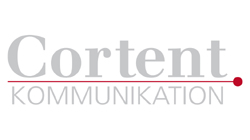The German Mittelstand

German SMEs seek strategy-oriented successors
Some 135,000 German SME entrepreneurs are on the lookout for worthwhile successors to carry on their businesses from 2018 on. The figure emerged from a survey conducted by the Institut für Mittelstandsforschung (IFM) in Bonn. According to Kreditanstalt für Wiederaufbau (KFW) who drew from a variety of databases, no fewer than 580,000 enterprises on the verge of a generation shift. Despite their disparity, the conclusions are all the same. German SMEs are working flat out to build sustainable conditions for succession.
The numbers are worrying and call for political action. The main session of a Europe-wide event dedicated to SMEs (7. Europäische KMU-Woche) held in Berlin at the beginning of July was devoted entirely to the question of succession within SME companies. Political interest in finding a solution stems mainly from the fact that a great many jobs are at stake. Iris Gleicke, government delegate for SME matters, and Secretary of State in the Ministry of the Economy and Energy has the numbers at her fingertips. Each year, some 400,000 jobs depend on the successful generational handover of the company that employs them.
Many entrepreneurs are beginning to wonder who’s going to take over running their business. Pensionable age is getting ever closer and there are no likely heirs in the family, which leaves one of two alternatives. Close down or sell out. The company may be bought out by a director or by a group of employees. More often, though, it falls into the hands of outside investors and one can understand the reluctance of an entrepreneur to see the company that he devoted his life to, broken up and sold piecemeal to investors out to make a quick kill.
The ideal solution would be a purchaser with strategy and perspicacity, an entrepreneur-investor not looking for a quick sale, but oriented towards company maintenance and growth along a path agreed on with the company management. People like this do exist, and one of them is the GESCO industrial group that has become specialized in the production of machines and tools, and in the technology of plastic materials.
GESCO AG sees itself as a specialist in questions of succession in SMEs, buttressing a functioning business model to extend and develop it. At the time of succession the specialist buys up 100 percent of the company equity, without, however, following an exit strategy. When the old entrepreneur is no longer involved, GESCO introduces a new management team that comes in with a quota of 10 to 20 percent vested interest and hence the same long-term vision as the parent company.
The disappointing results that Corporate Raiders lead to, are making politicians sit up and take interest in the matter. They see that succession within a company can only be seen as positive when jobs are secure long-term and, even better if more are created. The proposals put forward by the Federal Ministry of the Economy and Energy – including “nexxt-Initiative” and “nexxt-change” – are indeed useful but they don’t go far enough to cover the needs of SMEs in terms of information , practical support and adequate investment.















